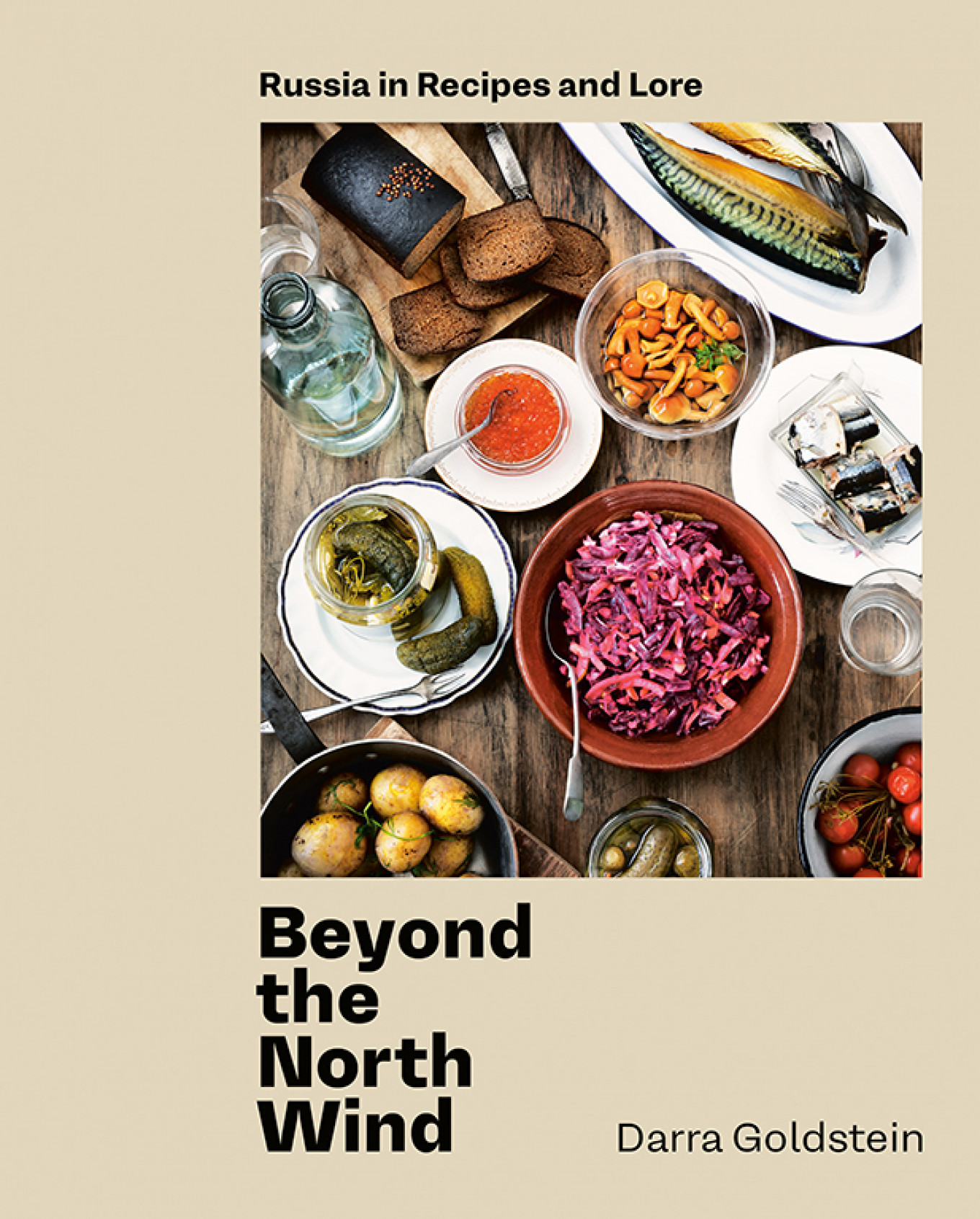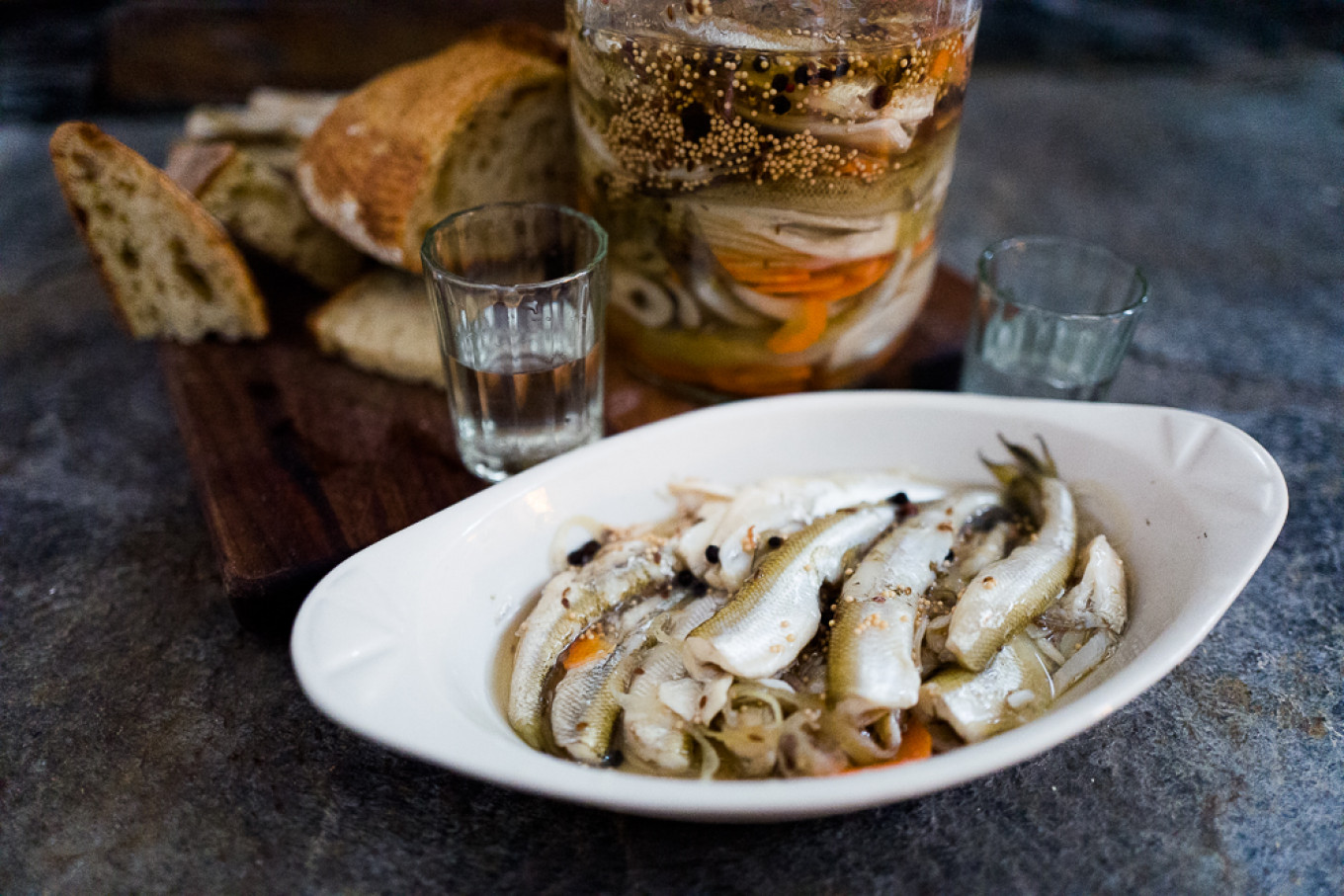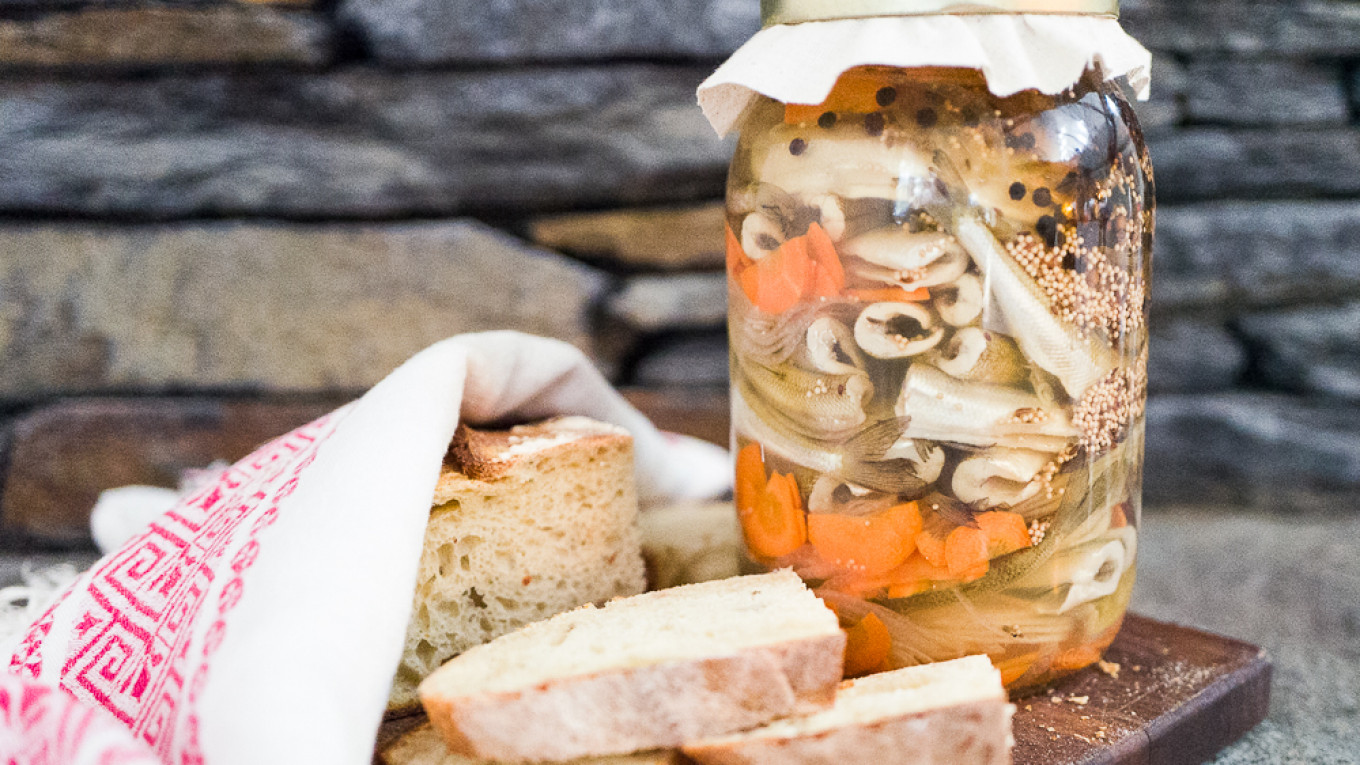Any serious study of Russian cuisine begins with Darra Goldstein.
For more than three decades, Darra Goldstein has led readers to the far-flung corners of the Soviet Empire and back in time to the opulence and abundance of the nineteenth century. Her authoritative 1983 "A La Russe: A Cookbook of Russian Hospitality" wove together strands of Russian history, literature, and culinary wisdom, remains firmly ensconced on lists of popular Russian cookbooks, including this paper's. A decade later, Goldstein was one of the first writers to introduce English-language readers and cooks to the magnificent flavors of Caucasian cuisine in "The Georgian Feast: The Vibrant Culture and Savory Food of the Republic of Georgia." To the delight of her many fans, Goldstein is back with a new quest to "unearth the most deeply Russian flavors," in her new book, "Beyond the North Wind: Russia in Recipes and Lore."
Culinary doyennes are often content to repackage old chestnuts in new cookery books, which makes the bracing and deceptively simple subject matter of "Beyond the North Wind" all the more welcome. Goldstein sets out on an arduous but invigorating mission to explore Russia's extreme north, Herodutus' "Hyperborea." There she finds simple but potent flavors, age-old traditions being reinvented, and an enduring appreciation for the freedoms that have always been the hardship payment for this remote region's harsh climate, poor soil, and truncated growing season: the Mongols did not reach this Arctic land, nor could serfdom be imposed on its natives.
"Beyond the North Wind" is both a departure from Goldstein's previous books and a glorious continuation of them. The beautifully photographed book lacks the rigid, almost encyclopedic approach of Goldstein's earlier works. In "Beyond the Northern Wind," Goldstein's focus is solely on quintessentially Russian flavors and this narrower brief results in a far more relaxed and leisurely reading experience. We are led on a delightful meander through the subject matter, one flavor or technique flowing organically into the next. Along the way, Goldstein takes the opportunity to observe how classic Russian dishes are being reinterpreted and reinvented, resulting in updated classics: pies, dumplings, fermented dishes, brined jars, soups, salads, fish, meat, grains, and sweets.
“Beyond the North Wind” is a hymn to the distinct flavors that run through the long history of Russian cuisine: the salty brine of fish and vegetable preserves, the tart tang of wild berries, the crisp sweetness of apples, the pungent umami of mushrooms and rye, buckwheat, and the burst of flavor from fresh herbs from the dacha garden. "Beyond the Northern Wind," like all great cookbooks, is not only a manual on how to make classic Russian dishes, but also a guidebook and travelogue — to one specific far-flung corner of Russia, indeed, but also into the beating heart of Russian cuisine and culture, a subject Goldstein has pursued throughout her career with enthusiasm and expertise. The book is a magnificent celebration of Russia's enduring culture of hospitality and the tenacious Russian "capacity to celebrate the moment since they're aware that darker days inevitably lie ahead."

My review copy was almost immediately riddled with post-its marking the many recipes I plan to try. But I could not resist beginning with marinated smelts, primarily in the hopes that it might solve my nagging annual problem with these lovely harbingers of early spring.
I have a love-hate relationship with smelts. Love, because I cannot resist their essential fishy flavor. Hate, because each spring, my husband and his chums occupy my kitchen for an annual all-male evening of pan-fried smelts. This Bacchanalia involves getting flour on every imaginable surface, using up (and often ruining) each frying pan in my arsenal, and using up all of my grapeseed oil.
Darra Goldstein's marinated smelts to the rescue! This idea is a game-changer. Simple and almost mess-free, this method produces a jar of delectably brined fish within 24 hours that are fantastic spread on buttered brown bread or served alongside a bowl of steamed new potatoes. Marinated smelts are a lovely and delicious way to beef up your zakuska table involving almost no cleanup. Bliss.
From "Beyond the North Wind: Russia in Recipes and Lore"

Pickled Smelts
Маринованная корюшка
The first of the Baltic smelts appear in late February, as early harbingers of spring. By the end of April, when the fish have made their way across the Gulf of Finland and down Saint Petersburg’s Neva River, the smelts have grown considerably, but they retain the distinctive smell of fresh cucumbers that the Russians love. It’s this attribute that makes the local smelts special and distinguishes them from those caught in the White Sea or in the Far East. So beloved are these small fish that devotees risk their lives to catch them when they’re at their best, in March and April, just as the ice is beginning to break up. Every year, smelt fishermen are stranded on ice floes. And every year, the fishermen return to the thawing ice, chop holes in it, set up makeshift tents against the fierce wind, and lower their nets into the icy water.
Spring smelts are most often pan-fried in butter, though chic Saint Petersburg restaurants now serve them as ceviche. They’re also excellent smoked and marinated. Just don’t expect the sweet Scandinavian style of pickled fish. This brine has a bold, vinegary bite.
Serves 10 to 12
- 1 pound gutted smelts, fresh or frozen
- 6 cups water
- 3 tablespoons salt, plus 4 teaspoons
- 2 cups cider vinegar
- 1⁄4 cup sugar
- 2 bay leaves
- 10 black peppercorns
- 1 teaspoon dill seed
- 1 teaspoon brown mustard seed
- 1 large carrot, peeled and sliced into 1⁄4-inch rounds
- 1 large onion, halved vertically, then thinly sliced into half-moons
- Thaw the smelts if frozen. Make a brine by stirring together 3 cups of the water and the 3 tablespoons salt in a large bowl until the salt dissolves. Drop the smelts into the brine, cover, and refrigerate for 8 hours or overnight.
- Rinse and drain the smelts in a colander. In a medium saucepan, bring to a boil the remaining 3 cups water, the vinegar, the remaining 4 teaspoons salt, and the sugar, bay leaves, spices, and carrot. Simmer for 5 minutes, then remove this brine from the heat.
- Place a layer of onion in a sterilized 2-quart container, then add a layer of smelts. Continue to layer the onion and smelts, ending with a layer of onion. Pour in the hot brine, seal the jar, and leave to cool to room temperature. Place the pickled smelts in the refrigerator to marinate for at least 12 hours before serving. They taste best when consumed within a week.
Reprinted with permission from Beyond the North Wind: Russia in Recipes and Lore by Darra Goldstein, copyright © 2020. Published by Ten Speed Press, an imprint of Penguin Random House.

A Message from The Moscow Times:
Dear readers,
We are facing unprecedented challenges. Russia's Prosecutor General's Office has designated The Moscow Times as an "undesirable" organization, criminalizing our work and putting our staff at risk of prosecution. This follows our earlier unjust labeling as a "foreign agent."
These actions are direct attempts to silence independent journalism in Russia. The authorities claim our work "discredits the decisions of the Russian leadership." We see things differently: we strive to provide accurate, unbiased reporting on Russia.
We, the journalists of The Moscow Times, refuse to be silenced. But to continue our work, we need your help.
Your support, no matter how small, makes a world of difference. If you can, please support us monthly starting from just $2. It's quick to set up, and every contribution makes a significant impact.
By supporting The Moscow Times, you're defending open, independent journalism in the face of repression. Thank you for standing with us.
Remind me later.







